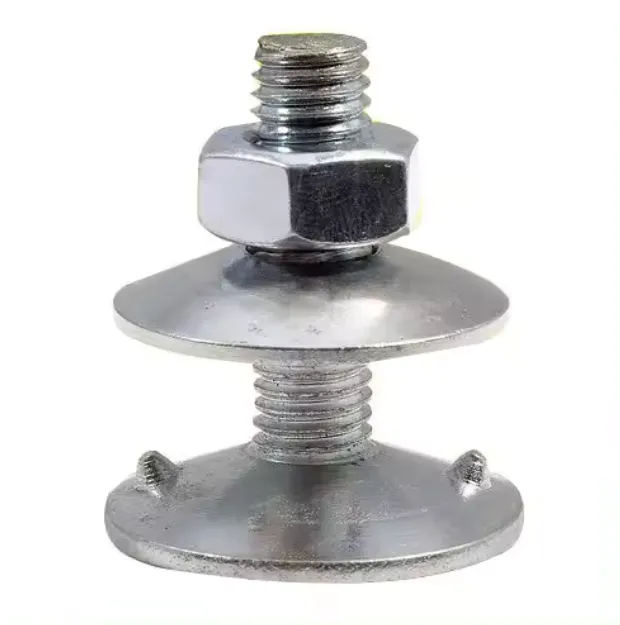

18mm Self-Drilling Screws for Easy Installation and Secure Fixing Solutions
Oct . 08, 2024 11:16 Back to list
18mm Self-Drilling Screws for Easy Installation and Secure Fixing Solutions
The Versatility and Applications of 18mm Self-Tapping Screws
Self-tapping screws are an essential component in various engineering and construction projects, offering an effective solution for creating strong, lasting connections without the need for pre-drilled holes. Among the various sizes available, the 18mm self-tapping screw holds particular importance due to its versatility and wide range of applications.
Design and Features
The 18mm self-tapping screw is designed with a sharp point that enables it to penetrate a variety of materials, including wood, metal, and plastic. The threads along the screw shaft are designed to cut into the material as the screw is driven in, eliminating the need for a pilot hole. This unique feature not only saves time during installation but also enhances the strength of the joint by creating a tight fit.
Typically made from durable materials such as steel or stainless steel, these screws are often coated to resist corrosion and wear, making them suitable for both indoor and outdoor applications. An 18mm length is ideal for a variety of tasks, providing enough grip without being overly lengthy, which can lead to material splitting.
Applications
One of the most common uses of 18mm self-tapping screws is in woodworking. They are widely utilized in furniture assembly, roofing, and outdoor construction projects. Carpenters favor these screws because of their ability to secure materials quickly while providing sufficient holding power. For instance, when building wooden structures like decks or fences, the use of 18mm self-tapping screws ensures that components remain securely fastened, even when subjected to various weather conditions.
18mm self tapping screws

In addition to woodworking, 18mm self-tapping screws are increasingly used in the metalworking industry. When joining thin metal components, these screws can easily create strong connections without the need for complicated fastening methods. This efficiency not only reduces assembly time but also lowers labor costs, making them a preferred choice for manufacturers.
Furthermore, in the HVAC (Heating, Ventilation, and Air Conditioning) industry, these screws are essential for attaching ductwork and other metal components. The ability to create a secure bond quickly is critical in maintaining system integrity and preventing leaks.
Benefits
The key advantages of using 18mm self-tapping screws include their ease of use, speed of installation, and the strong bond they create. For professionals and DIY enthusiasts alike, these screws eliminate the need for pre-drilling, which can be both time-consuming and challenging, especially in hard materials. Additionally, their ability to work effectively across different materials makes them a versatile tool in any toolbox.
Moreover, self-tapping screws are available in a variety of head styles and drive types, allowing users to choose the perfect fit for their specific project needs. This range of options ensures that they can meet aesthetic and functional demands, further solidifying their popularity among tradespeople.
Conclusion
In conclusion, the 18mm self-tapping screw is a vital element in both construction and manufacturing. With its combination of design efficiency, ease of use, and versatility, it caters to various applications across different industries. Whether for professional construction or personal home improvement projects, understanding how to effectively utilize self-tapping screws can greatly enhance the quality and durability of any work undertaken. As construction techniques and materials continue to evolve, self-tapping screws, particularly the 18mm variety, will remain a staple in toolkit essentials.
Latest news
-
Hot Dip Galvanized Bolts-About LongZe|High Strength, Corrosion Resistance
NewsJul.30,2025
-
High-Strength Hot Dip Galvanized Bolts - Hebei Longze | Corrosion Resistance, Customization
NewsJul.30,2025
-
Hot Dip Galvanized Bolts-Hebei Longze|Corrosion Resistance&High Strength
NewsJul.30,2025
-
High-Strength Hot-Dip Galvanized Bolts-Hebei Longze|Corrosion Resistance&High Strength
NewsJul.30,2025
-
Hot Dip Galvanized Bolts-Hebei Longze|Corrosion Resistance&High Strength
NewsJul.30,2025
-
Hot Dip Galvanized Bolts - Hebei Longze | Corrosion Resistance, High Strength
NewsJul.30,2025

